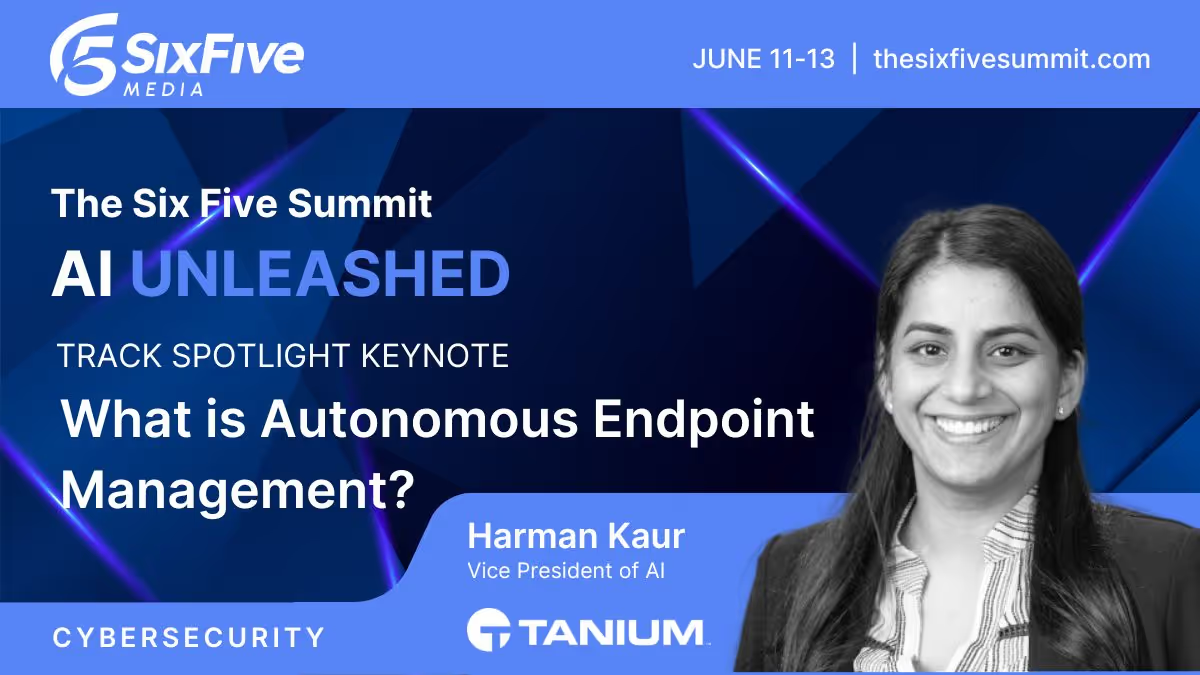Responding to Transformation: Generative Al & Knowledge Transfer - The Main Scoop Episode 35
Phil Weintraub, President at Weintraub Systems Consulting, joins Daniel Newman to share his insights on how Generative AI and new innovations are driving IT transformation.
How are leading organizations adapting their IT strategies to harness the power of generative AI and future innovations?
On this episode of The Main Scoop, hosts Greg Lotko, SVP & GM, Mainframe Software Division, at Broadcom, and Daniel Newman, CEO at The Futurum Group, welcome Phil Weintraub, President of Weintraub Systems Consulting. Their insightful discussion centers on Responding to Transformation: Generative AI, New Innovations, offering a vital roadmap for today's IT landscape.
Key takeaways include:
🔹Evolving IT Landscapes & Innovation Adoption: Gain insight into the historical trajectory of the IT sector and discover practical strategies for enterprises to effectively understand and integrate cutting-edge technological advancements.
🔹Generative AI's Influence on Hybrid Cloud: Explore the transformative role of generative AI in shaping modern hybrid cloud strategies and its expansive impact across the entire enterprise IT environment, not just the mainframe.
🔹Strategic AI Use Cases & Ecosystem Perspectives: Uncover the critical importance of precisely identifying compelling AI use cases, considering the diverse viewpoints of application developers and technology vendors for successful deployment.
Learn more at Weintraub Systems Consulting.
Watch the video below at Six Five Media, and be sure to subscribe to our YouTube channel, so you never miss an episode.
Or listen to the audio here:
Disclaimer: The Main Scoop is for information and entertainment purposes only. Over the course of this webcast, we may talk about companies that are publicly traded, and we may even reference that fact and their equity share price, but please do not take anything that we say as a recommendation about what you should do with your investment dollars. We are not investment advisors, and we ask that you do not treat us as such.
Greg Lotko: Hey, folks, welcome back to the next episode of the Main Scoop. I'm Greg Lotko. I'm joined here by my co host, Daniel Newman. Good to see you.
Daniel Newman: It's good to be back.
Greg Lotko: So it's appropriate that we're talking about AI and bots here today because we're going to talk about transformation and generative AI. I think you've got a lot to say about the AI space and the transformations going on.
Daniel Newman: I love when we bring guests on to the show that share my passion for Al. For everyone out there that hasn't watched this before, that's what he likes to call it Al I call it AI I'm just kidding.
Greg Lotko: Never done that before in my life. Giving me a real sense of humor.
Daniel Newman: Listen, this is a really important inflection. And all things aside, right, all this stuff that we focused on, that you focused on for decades as you built this business at Broadcom, are still in place today. But we are at this interesting impasse. This moment right now where we feel machines and intelligence are happening so quickly. Workforces and the way we are going to skill and develop is maybe not completely changing, but it's changing meaningfully. And I think that it is really important right now that we put some energy into discussing how enterprises, how businesses, how companies, and how technologists think about the future in an era with technological change happening so quickly.
Greg Lotko: And I, I actually agree with you seriously, all kidding aside. So we've had discussions about AI. My perspective has not been down on AI or that AI isn't going to be a huge transformation or it's not going to do great with work and some of the heavy lifting in the world. The reality is I just think about it as the context of all the different evolutions we've seen of technology over the last 30, 40, 50, 60 years. And every time a new technology came out, it was touted, lauded as it was going to be the be all, end all and do everything. So I do believe, I do believe there are fabulous use cases for AI. I do believe it's going to drive a transformation. I do believe it's going to do a lot of meaningful work in the world for businesses, for technologists, just that it's going to change the way we work and it's going to become one of yet another piece of the bouquet of technology.
Daniel Newman: And tech's been incredibly deflationary for a long time. It's made us more productive, it's made businesses more efficient. Yes, we do.
Greg Lotko: But we have a guest today.
Greg Lotko: I'm going to pull into the conversation. So joining us today we got Phil Weintraub from Weintraub Consulting.
Phil Weintraub: Thank you, Greg.
Greg Lotko: So I'd like you to tell us a little bit about your role and what it is that Weintrub Consulting does. I imagine you consult.
Phil Weintraub: I do some consulting on the side of living, yes. So as a consultant, my specialty for my firm is clients. They typically do have an IBM mainframe somewhere in their IT architecture and they're figuring out what am I going to do with this technology? What should I do with this technology? Should I still be investing in this technology? Now I'm very lucky. I had a 38 year career with IBM. I've been in IT for about 45 years. And I've been lucky enough to live through four huge technology transformations.
Greg Lotko:The wheel. Oh, sorry, sorry.
Phil Weintraub: Client server. A little after the wheel, not too far after and everything's accelerating. Right. So the client server was the first. The second was E-commerce with the Internet. The third was the evolution of the cloud, which is still very much evolving and now adding onto this AI. And just listening to you earlier, I think my comment would be the thing that most makes AI different from the other technologies. Where other technologies were tools for humans to use to improve business, improve social interactions, et cetera. There's a whole lot of things associated with AI where it's yes, there's going to be the benefits that we're talking about, but it's also something that's really going to change everything about society and how people live every day. It's going to end up affecting how economies work. I mean, just going to be so much more transformation than any other technological transformation that we had before. But that's a little bit about me. I mean, I consider myself more of someone who's riding this amazing wave of technology. And even though I was involved with the mainframe since 1981, my first job in college was putting stacks of cards into a card reader. But I've always been very forward looking and getting on to helping clients use that next phase of technology and how are they going to exploit that and use that and that's what I'm still doing today.
Daniel Newman: Well, and that's a really good segue to whether it's been AI. So you've been through these four generations, the wheel fire, you know, Earth, And now we're going to go to music. But in, in seriousness, as you sort of go through this process with these customers though, and you help these clients and they're going from one thing and now they're coming to you. There was a period where they came to you about client servers, then they came to you about cloud, they came to you about mobile, now they're coming to you about AI. How do you sort of talk to them in this first phase? Because there's a bit of this panic and being on the analyst side, we're kind of always looking at this kind. It's like the gold rush, right? We got to get into this.
Phil Weintraub: Yeah.
Daniel Newman: Then there's the other side that we can burn a lot of resources. Two years ago, companies thought they needed to stand up every, every company thought they needed to stand up their own GPU and start developing their own models and they were spending it and then like three months later someone built that and streamlined it, made it available and it was off the shelf. And then Google has a product and IBM has. And what I'm saying is like, how do you sort of get them to go without sending them down?
Phil Weintraub: Great way to put it. So as a consultant, my role is not to get customers to go somewhere. My role is to meet the client where they are, help them understand where they are, technically understand what they need to get out of their IT architecture, out of their systems and then help them get there. So we're so early in AI that most customers aren't really at a point of exploiting AI. So I would say where we are right now is this phase where AI will mostly be used to help make systems more self autonomous so that they can heal themselves, fix themselves, figure out what to do. I don't expect it, especially on systems of record backend systems. I don't expect there to be that many AI applications for a few years from now.
Daniel Newman: You know, you have all these challenges that customers have and they come to you to solve and you are sort of supposed to be the one to guide them to those killer apps. And we're still very early days. In fact, you know, Arvin Krishna said something at IBM Think. I think he said 99% of enterprise data hadn't touched AI yet.
Greg Lotko: Or the other way around, AI hasn't touched 99%.
Daniel Newman: AI has not touched 99% of enterprise data. Correct. And so while some of these consumer applications have proliferated incredibly quickly, and now everybody's Grandma knows what ChatGPT is, things like that, but AI has not found its way in the enterprise that quick. And companies are coming to you and probably saying, what are those use cases? How should I be thinking about it? But we spent two decades doing big data, most of us not very well. We never quite got the data state in order. So there is still a lot of consulting to do there. So how are you sort of guiding them to finding these first AI?
Phil Weintraub: So this is how I think about it kind of before we talked about AI. For the past 10 years we've been talking about machine learning and the enterprise systems of record mainframes, huge stores, like 70% of the world's data operational data is sitting there really great for teaching systems, doing machine learning on things. When you talk about AI applications that engage with human beings or they're going to start writing their own code and that stuff, I think the first applications, or I should say uses, the first uses of AI is first going to be in software engineering, software development, especially when it, to me, when it comes to enterprise systems where 70% of the code that's running in most mainframe systems is so stable, nobody has touched that code in 40 or 50 years. It just runs. And what they've done is they've added layer on top of layer with each transformation for the interaction with the outside world. So anytime now that you want to touch something, you don't have anybody alive. In a lot of cases, that was around when that code was written. It's not well documented, as I'm sure you can attest. And I think that's where AI is going to really help in the short term, like three to five years. This helps software engineers understand what they have, what they're working with and how do they optimize that, how do they build on top?
Greg Lotko: So there's AI for application or middleware. And I'm going to draw the distinction between application and middleware development. And there's AI for application and middleware understanding. I'm curious, do you see and do you believe there's where we are? Is there a greater capability or a greater likelihood that AI can yield a benefit in application understanding and development versus the middleware OS development and understanding?
Phil Weintraub: I think the market is significantly bigger and I think that's going to drive where it's going to happen first. It's going to be market driven and I think it's going to be driven much more with the applications.
Greg Lotko: I agree. Because if you think about AI and modeling, human thought or human behavior, and we think about, even as humans are approaching the application development versus the middleware development, it's a lot easier in human terms to describe to somebody the functionality of an application and why things are happening in the middleware. You're talking about interacting with other processes that are technological and abstracted and generic across multiple, multiple use cases. So I think it's much harder to get to the state where you say that these AIs are going to be as effective at generating or understanding that code.
Daniel Newman: Because applications play through middleware, I mean, that's where they're going to.
Greg Lotko: Yes, except for the fact that you've got that other layer of extraction and genericism that I, that I, I'm not saying that it's impossible and that we might not get there someday, but I think the application relative to, I mean technology programming in general has automated and codified a business process or a pattern that is repeatable or has paths through it based on this happening or that happening.
Daniel Newman: Right. I just mean like, you know, we saw a decade of RPA in sort of intelligent process automation sort of sputter. It went into place and a lot of it was, you know, running these hard coded processes over and over. And the reason it always got stuck and never sort of fully materialized to its potential was it lacked the intelligence, it lacked in nuance the ability to be contextually aware and potentially see a flaw heal itself. And now we're seeing whether it's autonomous databases and systems that can repair themselves, or you just see the idea of what an agent that can talk to another agent can do to basically navigate. A lot of that to me does feel like it ends up being in the middle. It ends up being the middle because it's like machines working with machines on things that basically humans were only doing because they had to communicate to the machine.
Phil Weintraub: Yeah.
Daniel Newman: Then we built systems and automations and now it's becoming intelligent and contextually aware yeah.
Phil Weintraub: So here's my perspective and I'll preface it with I'm a New Yorker, so I'm very direct. I was born in New York, but for the past 10 years I've lived in Silicon Valley and I moved to Silicon Valley because I've always been very interested in technology and I want to be close to the VC community. And when you look at where companies get money today, it's not really in the public Wall street kind of market. Most of them are getting money from venture capital and from the meetings that I had when I first went out there to meet with a bunch of VCs. What's very clear to me is what they do is they put big bets in a lot of different places, but they're looking for something that's going to pay off a million of one, something where an idea is going to be a zillion dollars. So when we talk about where is the money going to come from to fund the AI advances, when you talk about middleware systems, okay, but that's kind of a limited market where the VC money is going to go and therefore the innovation is going to go is the systems of engagement, the things that are on the IoT kind of devices where it can make decisions without connect to the back office. So I agree that there's a lot of value that's buried in the operational data in mainframes and other systems. But you know, and the big companies will do that, but the masses are going to get the value out of AI as it's applied to end user applications.
Greg Lotko: This has been really helpful for me. So I know you and I have been having this AI conversation kind of going throughout and I know you, you feel like I'm more down or not up on the hype. And the reality is it's this pattern of use case that is helping me immensely and clarify my own thoughts. So the idea of the application space versus the middleware space, the ability to take those inputs and based on a different pattern, recognize and go. I do believe AI can go there, but it even gets to our shared passion of automobiles and self driving AI. The reason I'm not as high on that also is because of not only the generics, the genericism or the vast variety of the situations that it has to deal with. It's also about a finite set of inputs or sensors, whether it be radar or lidar or a visual camera. And you might say, well yeah, but a human is constrained the same way. We have our eyesight, we have our smell, we have our hearing. We have, you know, the feeling of the butt in the seat. But we also have the intuition and we also have the ability to deal with a situation where a new or totally different variable presents itself that we've never been prepared to receive before. And I think that's the big differentiator. So I absolutely see AI driving us forward and providing capability. It's about it not being everything to everybody today, tomorrow, but the use cases where it can really be leveraged. And I think that's where it's going to go fast. And I agree with you. The investment is what's going to drive it and the payoff will be much bigger in a broader use case, which is the application space.
Daniel Newman: We're also talking about the stack, though, because some of what I was talking about. No, I wasn't necessarily suggesting that's where investment will pour in. I'm just suggesting that the IPAAS layer can be solved with a lot of agentic tools.
Greg Lotko: It will work its way down the stack as it gets.
Daniel Newman: In the end, though, why are you seeing all the money pour into the LLM community? Why'd you see all? Because these are the exponential returns. And optimizing one workflow process at the local bank is something that ideally one of these massive tools will be able to enable. That'll come from a company like Broadcom or IBM or Google. You know, these are the companies that will build that stuff and they'll scale it out, deploy it, democratize it, and make it available to enterprises. So I think we are currently, you know, just to make sure we talk about the same thing in some ways you're talking about consumption. In other ways we're talking about investment. But investment in the end will always lead to economic growth. You know, we've got the number pinned at over $20 trillion of expected economic impact by the next, whatever five years out that AI will have. And we also pegged it at like almost 4 trillion of labor takeout.
Phil Weintraub: So with companies that are operating with more everyday things, how do I survive? How do I modernize my environment? Where should these applications run? They have so many other things to do. I give them their list. They prioritize what they can afford to spend money on. They don't have a huge amount of money. And then, yeah, they'll call me back in a couple of years when that project's done. That one's successful. Okay, here's the next important thing on my list with the other piece and the more forward looking stuff, which tends to be more with the investor community. It's also the kind of thing, because I've been doing that for a number of years, people call me and they talk to other people and it just kind of grows organically, not within a single company or at the firm. They have multiple people at different desks and then they'll start calling and they say, hey, we spoke to you for a couple of hours two years ago and we'd like to, you know, we're going to evaluate this company. Can you come work with us for a month? So it's very different for the two segments of my business.
Daniel Newman: Across the spectrum here, I think what we would all agree on is that we are in this transformative period.
Greg Lotko: Absolutely.
Daniel Newman: It is going to change, change the way companies have to think about technology, and have to think about how AI is infused in their sort of traditional technology stack. And then you'll hear the new wave companies talking about AI as a whole new architecture and we're going to have to find that intersection and we're going to have to drive it forward. Phil, I want to thank you so much for joining us here on the main. Great time spending some time with you.
Phil Weintraub: And we'll get to, we'll get together for a beer at McSorley's in New York City. In 30 years we've been drinking it.
Daniel Newman: Through a straw, but I feel like Back to the future.
Greg Lotko: Yeah.
Daniel Newman: Anyway, back to the future. We hope that you will be joining us for more episodes of The Main Scoop for Greg Lotko and myself. We appreciate you being part of our community. Subscribe and catch all of our content here, but we have to say goodbye for now. See you all later.
Greg Lotko: See you next time.
Daniel Newman: Bye bye.
MORE VIDEOS

The View from Davos with Wedbush’s Daniel Ives
Daniel Ives of Wedbush Securities joins Daniel Newman from Davos to discuss why AI adoption is entering a monetization phase, how enterprise software and modernization are driving ROI, and why the current cycle looks more like the early stages of a long-term buildout than a speculative bubble.

The View from Davos with Check Point CEO Nadav Zafrir
From Davos, Check Point CEO Nadav Zafrir joins Daniel Newman to discuss why cybersecurity has become a foundational requirement for AI transformation, and how prevention-first strategies and AI-powered defense are essential as agents move into real-world systems.
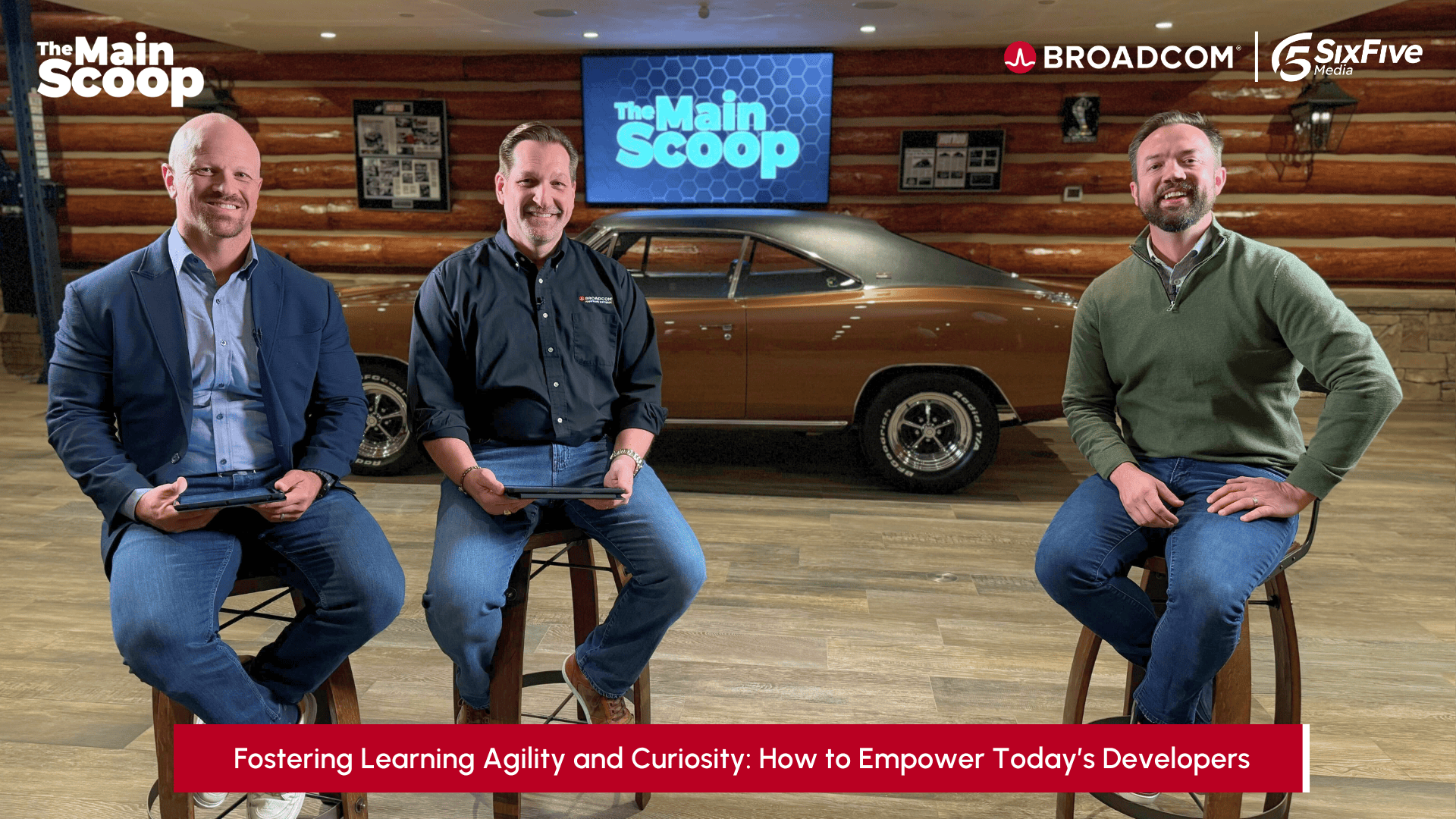
The Main Scoop Episode 39: Fostering Learning Agility and Curiosity - How to Empower Today’s Developers
Brent Foster, VP and Engineering Practice Owner at TD Bank, joins The Main Scoop hosts to discuss developer empowerment through generative AI, the modernization of mainframes, and building strong technical career paths in evolving enterprise IT.
Other Categories
CYBERSECURITY
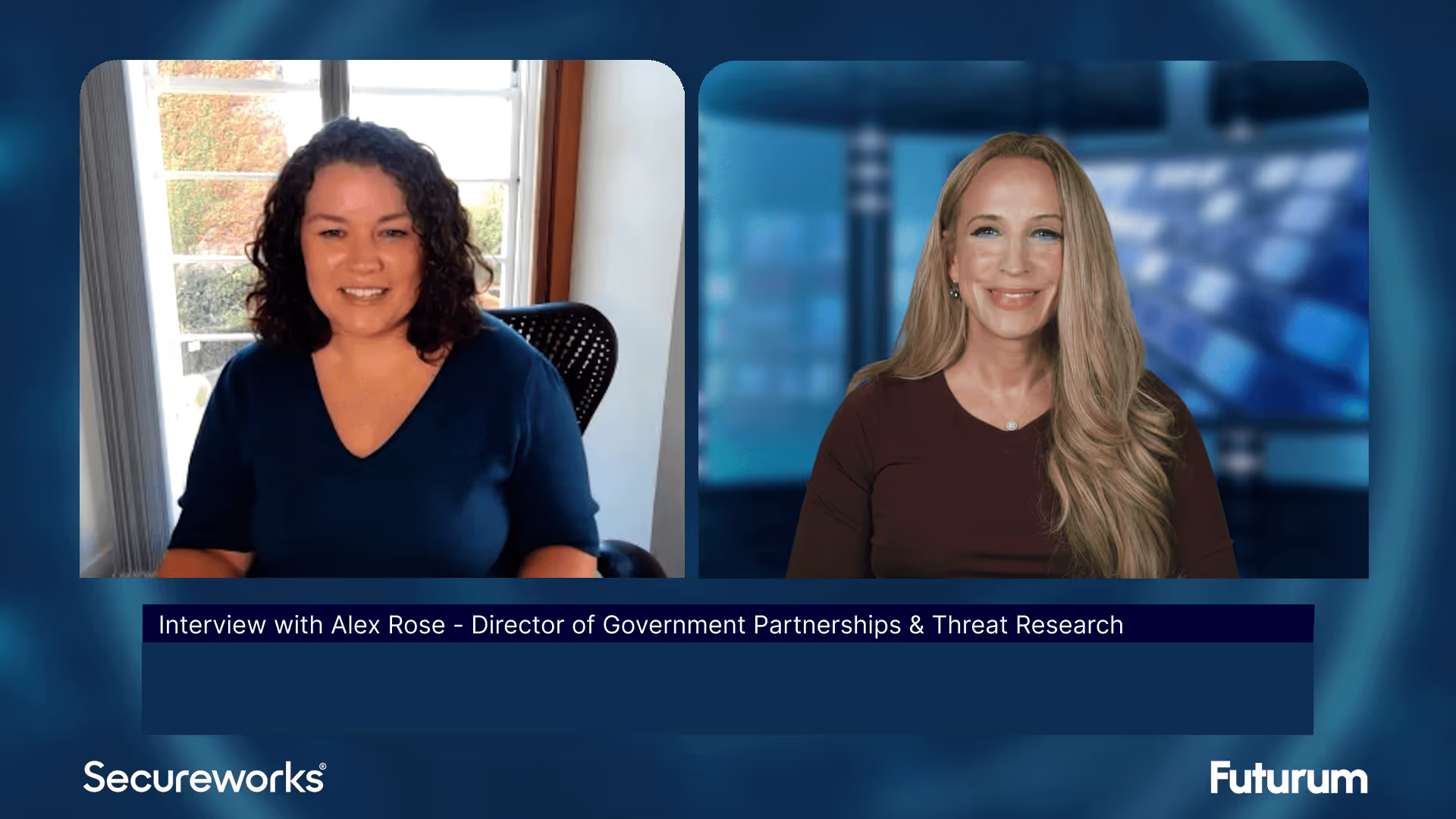
Threat Intelligence: Insights on Cybersecurity from Secureworks
Alex Rose from Secureworks joins Shira Rubinoff on the Cybersphere to share his insights on the critical role of threat intelligence in modern cybersecurity efforts, underscoring the importance of proactive, intelligence-driven defense mechanisms.
QUANTUM
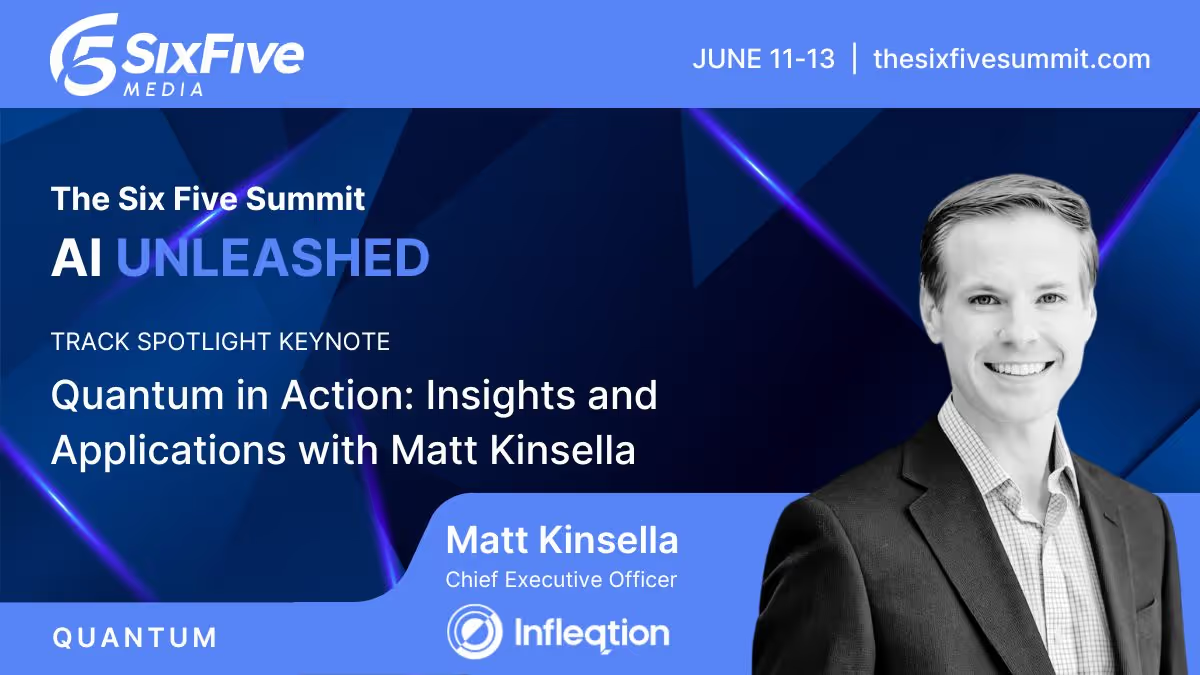
Quantum in Action: Insights and Applications with Matt Kinsella
Quantum is no longer a technology of the future; the quantum opportunity is here now. During this keynote conversation, Infleqtion CEO, Matt Kinsella will explore the latest quantum developments and how organizations can best leverage quantum to their advantage.
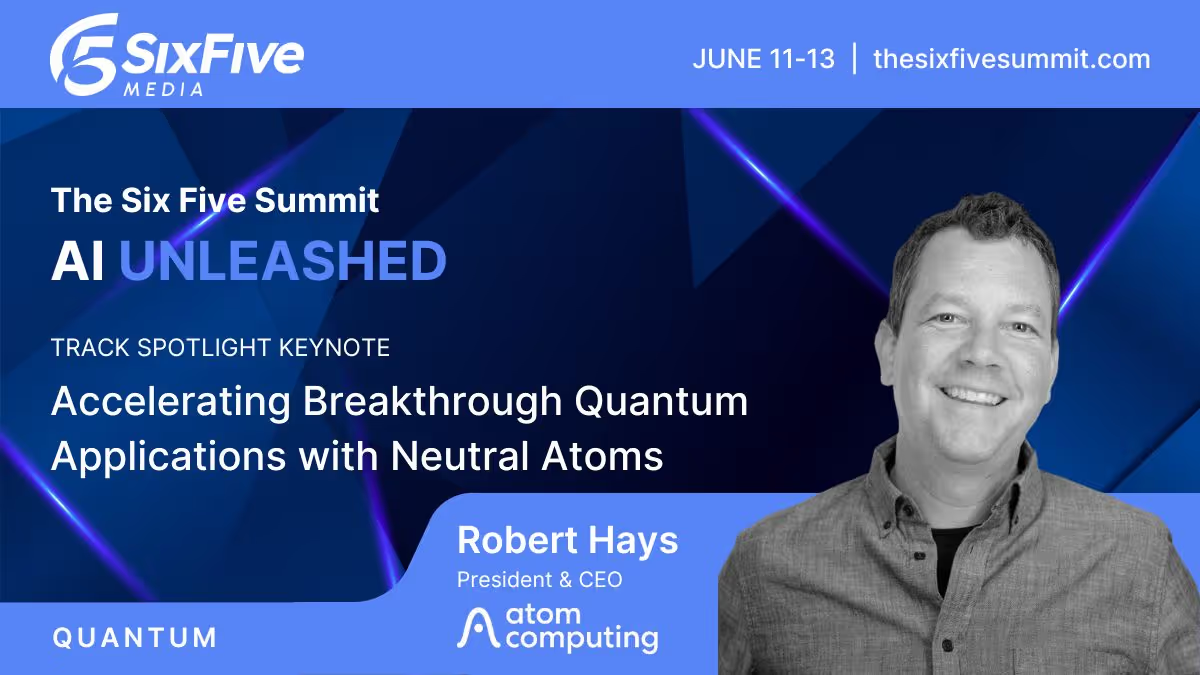
Accelerating Breakthrough Quantum Applications with Neutral Atoms
Our planet needs major breakthroughs for a more sustainable future and quantum computing promises to provide a path to new solutions in a variety of industry segments. This talk will explore what it takes for quantum computers to be able to solve these significant computational challenges, and will show that the timeline to addressing valuable applications may be sooner than previously thought.




